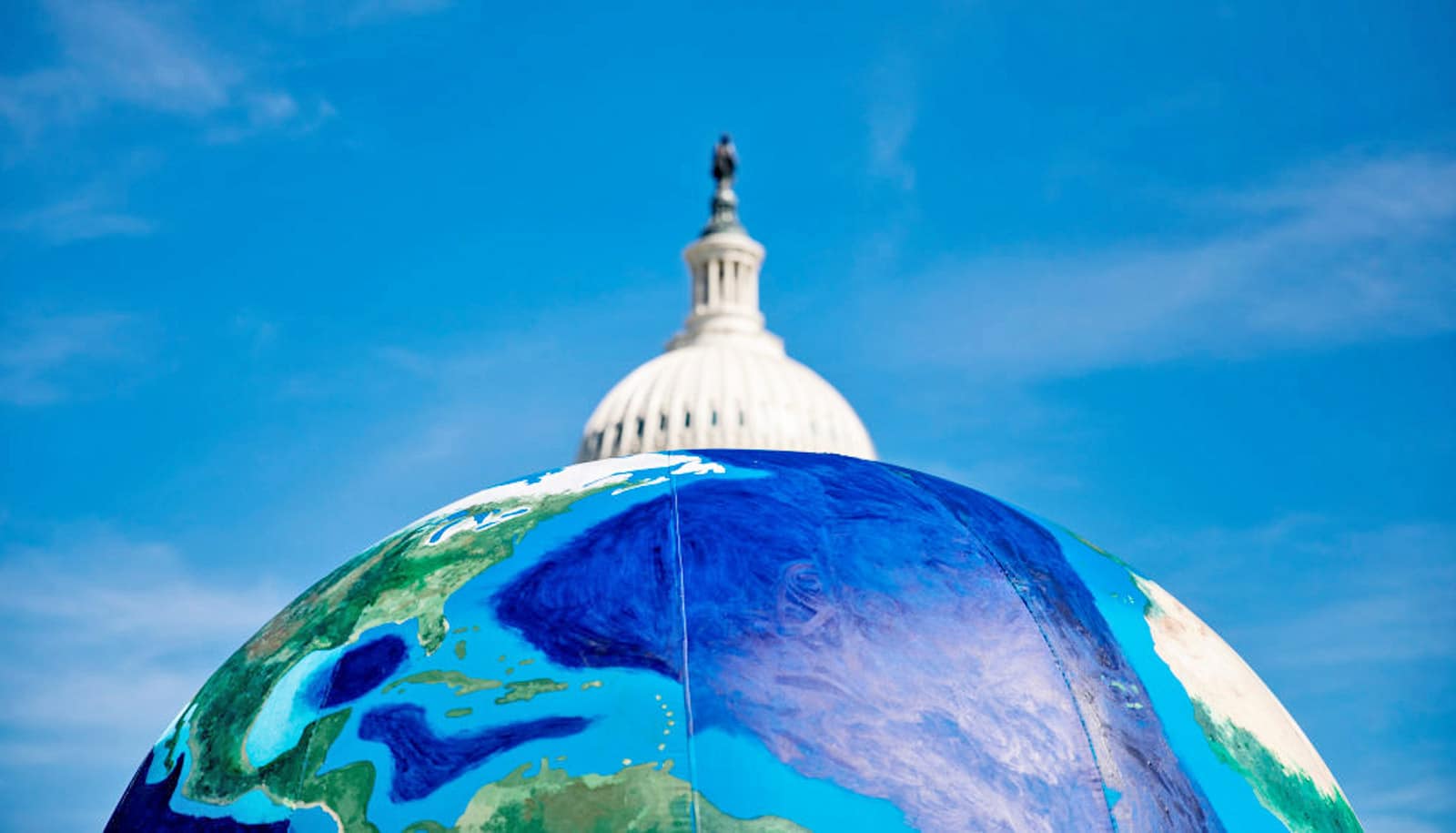A majority of a sampling of Republicans and Democrats who intend to vote in Presidential primary elections believe there is evidence that the Earth is warming.
A majority of the sampling of both parties also recognize that humans caused much of the problem, and support a range of policies to address it.
From there, however, their viewpoints differ widely—even from their candidates’ positions.
In a November wave of the American Social Survey, political scientists polled likely voters in the 2020 Presidential primaries to find that—despite consensus among Democratic candidates, and the Trump administration’s actions to repeal environmental regulations—the two parties’ electorates don’t match their candidates’ stances on climate change.
Among their own party, Republicans clash about the severity of climate change as an issue, let alone how to try to resolve it.
While 57.2% of the Democrats polled considered it a crisis, only 11.1% of the Republicans felt the same way. Republicans showed they are deeply divided on the issue when it came to describing the level of climate change’s role:
- 32.9% agreed it is a major problem, but not a crisis.
29.3% agreed it is a minor problem.
20.9% agreed (contrasted against 2.9% of Democrats) it is not a problem at all.
“The primary goers of the two parties are split on using carbon taxes to create disincentives for carbon emission, but, contrary to what may be the common perception, a small majority of Republican primary goers and a much larger majority of Democratic primary goers support more direct limits on the output of greenhouse gases,” says Steven Smith, professor of social science at Washington University in St. Louis and director of the Weidenbaum Center on the Economy, Government, and Public Policy, which conducts the poll.
“This differs from most economists, who argue that taxing carbon emissions is a simpler and more efficient way to address the problem.”
What Republicans and Democrats agree on
Smith, William Lowry, professor of political science and environmental studies, and Patrick Rickert, a graduate student in political science, found in their November 4-14 snapshot survey of 743 potential primary voters that nearly 90% of Democrats and 60% of Republicans believe there is evidence of Earth’s warming average temperature.
How climate change is caused and possibly resolved likewise show some perspectives where a majority of the two parties agree, others where they diverge.
“Republican elites may cautiously begin to consider solutions…”
Some 82.7% of the Democrats and 40.8% of the Republicans sampled recognize evidence that humans are causing global warming. However, 38.9% of the Republicans surveyed believe it comes from natural patterns, while 20.3% said that they didn’t know the reason.
A majority among both parties showed support for stricter limits on greenhouse gases and on fuel efficiency for trucks and buses, but each was far less favorable about raising taxes on carbon-based fuels. The least popular proposal for addressing climate change among this survey: carbon-emission taxes.
“If candidates do want to propose carbon taxes, they need to specify popular uses for the revenue such as funding renewable energy or they will get support from only a slim majority of Democrats and strong opposition from Republicans,” Lowry says.
Naturally, the respondents who recognize global warming show a more supportive bent than overall primary goers when it came to the subject of pro-environment policies—Democrats in an overwhelming majority, and Republicans in smaller majorities on the non-tax potential responses.
“The primary immediate obstacles to enacting legislation are the divisions among Republican activists and the lack of commitment among Republican elites that may be caused by those divisions,” Smith says.
Who’s still denying climate change?
Climate denial remains a strong component among the electorate, if not the candidates.
Among the subset who disbelieve evidence the Earth is warming, nearly 40% of the Democrats holding that view and 55% of the Republicans endorsed the idea that advocates of global warming are deliberately misleading us for their own political reasons. Some 32% of the Democrats and 27.5% of the Republicans in this subset sided with the statement that scientific evidence is incomplete or misleading.
“Respondents who indicated their support for President Trump were less likely than Republicans overall to say the Earth was warming, with a slight majority indicating that it was not, and only a third willing to attribute such warming to human activity,” Rickert says.
“By contrast, the supporters of Democratic presidential candidates were much less doubtful, with fewer than 4% of intended Sen. Bernie Sanders and Sen. Elizabeth Warren voters saying the Earth was not getting warmer, and around 90% responding that warming was due to human activity.”
The survey further broke down how ideology, gender, age, and education in regard to people believing the evidence for global warming: liberals and women far more frequently recognized it than did conservatives and men. People with higher levels of education were also more likely to believe the evidence for global warming.
This survey shows that each party’s platform could contain planks around climate change.
“Democratic officials should be bolstered by the unanimity in their electorate to address climate change as a major concern,” says Rickert.
“Republican elites may cautiously begin to consider solutions, as support to tackle climate change among their electoral base is divided, though with a majority believing in global warming.”



